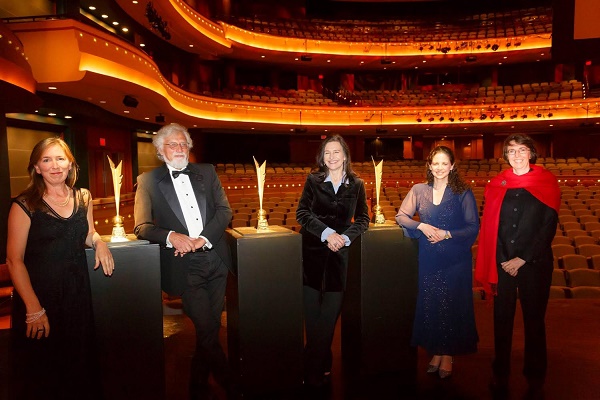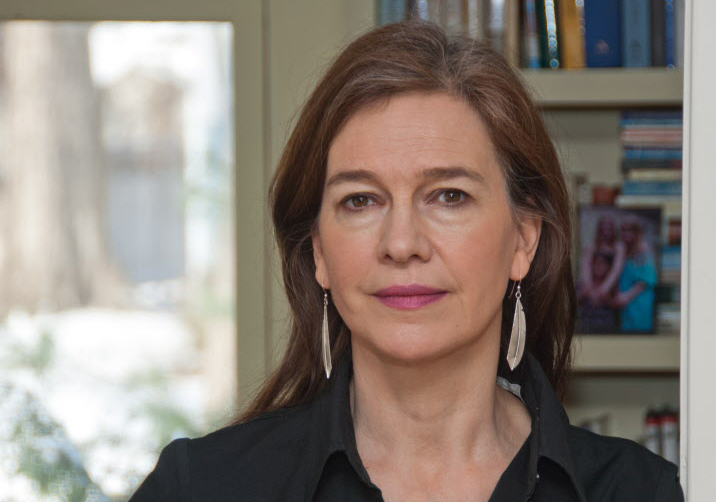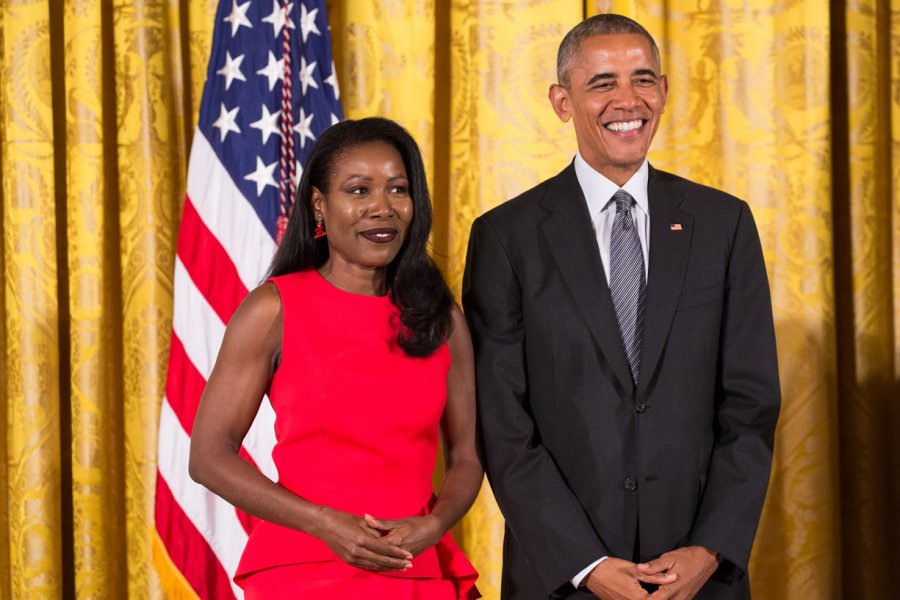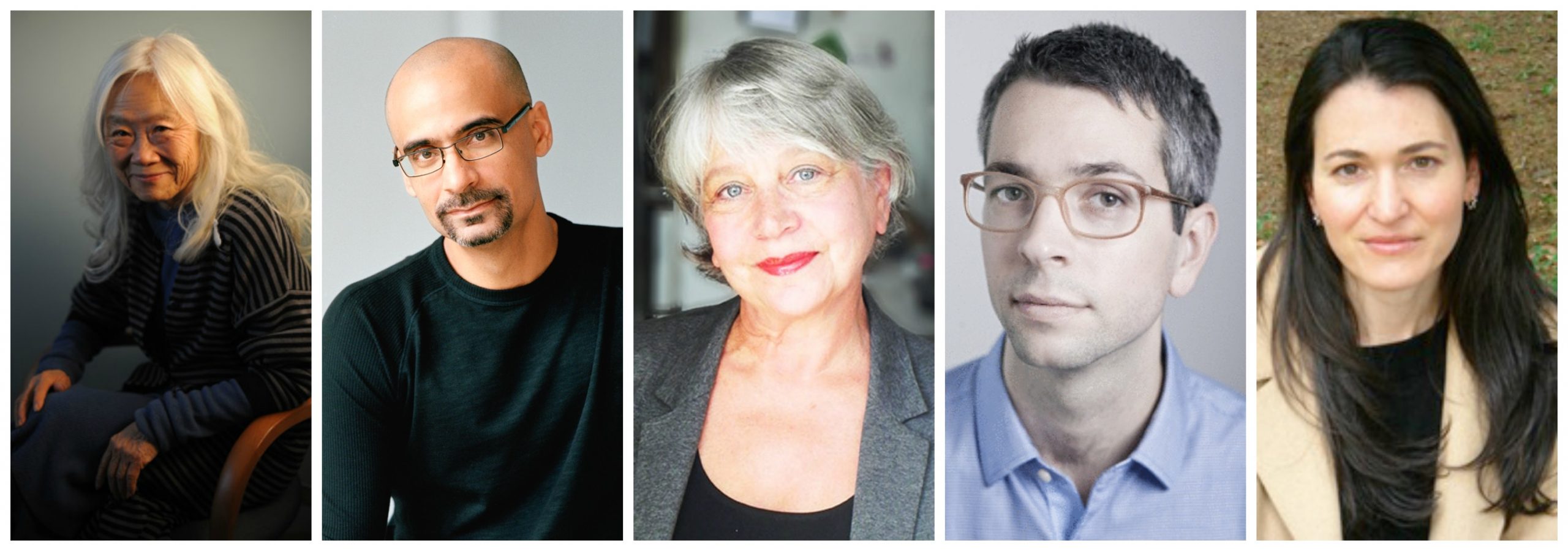On a recent sunny Sunday morning, four celebrated American writers rose early to meet for breakfast and chew over the merits of Kentucky Fried Chicken.
“I worked as a Kentucky Fried Chicken hostess,” said novelist Louise Erdrich, who won an Anisfield-Wolf Book Award for A Plague of Doves. “And I’ll just say it: the secret ingredient is sugar.”
Marlon James, whose ambitious new book about Jamaica, A Brief History of Seven Killings, is already anointed one of the best of 2014, insisted that KFC tastes better when eaten outside the United States.
“It is a joy to be back in Dayton and to be with such fantastic writers,” declaring Adam Johnson, who won a Pulitzer for The Orphan Master’s Son, his tour-de-force story set in modern North Korea. The Stanford University professor said that such warm, KFC-infused chatter “can only happen in Dayton.”
The fourth member of the impromptu breakfast club, Gilbert King, saw “Devil in the Grove,” his narrative of a game-changing civil rights battle in Jim Crow Florida, win a surprise nonfiction Pulitzer in 2013. He stayed mum, however, about fast-food chicken.
All four writers relished one another’s company and the rest of the throng convened for the 2014 Dayton Literary Peace Prize, an outgrowth of the Bosnian Peace Accords negotiated in 1995 at the Wright-Patterson Air Force base outside Dayton.
Begun in 2006, the initial Dayton prizes attracted “about 13 people for the first gathering,” said Sharon Rab, founder and co-chair of an honor that elevates literature fostering “peace, social justice and global understanding.”
Just eight years later, more than 300 readers assembled to hear Johnson, who won for fiction last year; James, who did the same in 2010 for his first novel The Book of Night Women; King, last year’s runner up in nonfiction and Erdrich, the winner of this year’s Richard Holbrook Lifetime Achievement Prize. The lines were longest to speak to her.
“Part of my work has been to tell stories about ordinary people who do extraordinary things,” Erdrich said. “My role is to be there as a writer and never to judge my characters — to understand the basis of behavior when it is cruel.”
Wearing a warm smile and dark, modest clothes, Erdrich’s beautiful posture reflected a kind of moral erectness. “I am not a peaceful writer; I am a troubled one, longing for peace,” she told the organizers. She declined to pose with a book when a reader coaxed her, and she rejected the notion that writing centers her.
“No, I don’t think it helps me find personal peace,” she said. “But I am addicted to the joy that comes over me when I write a good paragraph, or even a good sentence.”
Erdrich, 60, described taking her first plane flight from her North Dakota home to attend college at Dartmouth, where the school teams were still informally called Indians. “The outrage and the uproar that happened at this Ivy League college at changing their name was shocking to me, but after many years, they did it.”
She noted that the University of North Dakota has finally retired its “Fighting Sioux” moniker and reported that sportscasters in her hometown, Minneapolis, won’t even say the “R word,” the nickname of the Washington, D.C. football team. Its roots lie in the bounty hunters were paid in the 1860s for dead Native Americans.
Also on stage at Sinclair Community College was this year’s fiction winner, Bob Shacochis, sporting a silver mane of hair, a wry smile and an open-throated shirt. His novel The Woman Who Lost Her Soul ranges over 700 pages, 50 years and four continents as it explores the unintended consequences of American foreign policy. Shacochis, a former Peace Corps volunteer in Haiti, told the audience in downtown Dayton that the “woman” in the title is the United States.
The nonfiction winner, Karima Bennoune, grew up partly in Algeria and partly in the Midwestern United States. Her book, Your Fatwa Does Not Apply Here, draws on global fieldwork and penetrating interviews to document hundreds of instances of resistance to radical Islam. Bennoune, a professor of international law at the University of California-Davis, decried how little is known about the resisters, and called to task Westerners on both the left and right who exaggerate and distort the stories of people in Muslim countries. She pointed to her father’s courageous resistance to censorship in his Algerian classroom, and the Afghanis who fought for the lives of their cultural treasures against the Taliban as if the statues “were their children.”
“If you want to know what Muslims think, you may want to ask them, Bill Maher,” she said pointedly in Dayton. “God bless Ben Affleck in calling out Maher, but he is wrong to say ISIS couldn’t fill a AA ballpark in Charlotte, because it could. Bill and Ben should actually start talking to people who know more about this than we do.”
As the runners-up in fiction and non-fiction took the microphone – Margaret Wrinkle for “Wash” and Jo Roberts for “Contested Land, Contested Memory” – they enhanced an intellectually vigorous, warm, collegial session. Wrinkle, a seventh-generation daughter of slave-holders, spoke about the spiritual underpinnings of her slavery fiction, and Roberts spoke eloquently about listening to all types of people ensnared in the Israeli-Palestinian conflict.
Publisher, editor and composer Christopher Cerf, who moderated, beamed at the end. “As someone who has heard about the death of publishing far too much, as you can see, it is not dead yet, and not dead in the cause of peace.”



